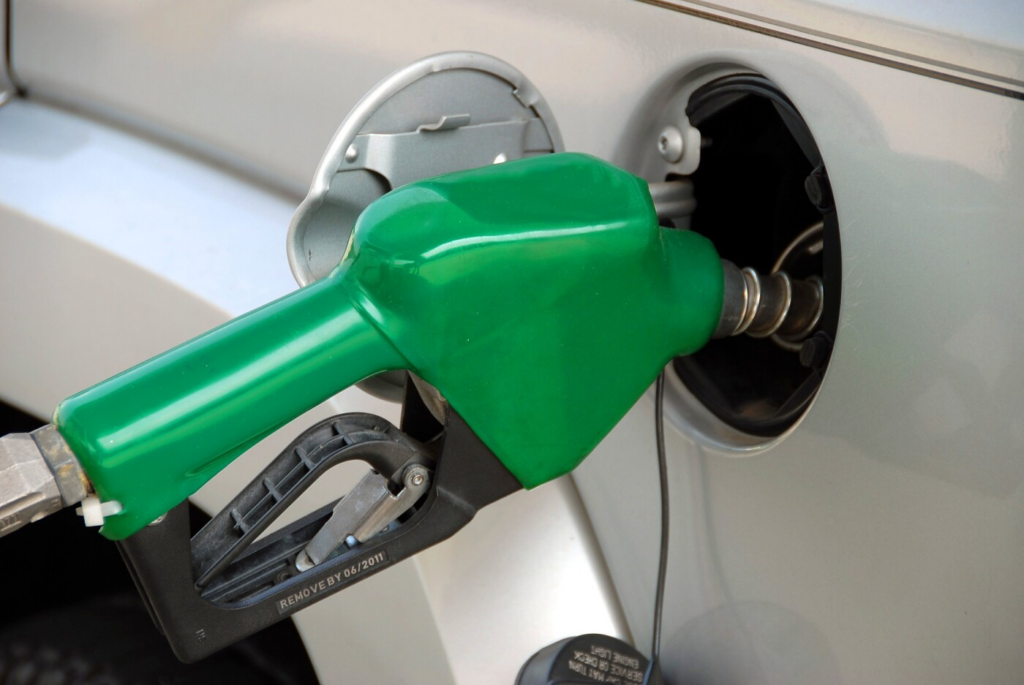The Audi Q5 is a highly regarded luxury SUV known for its performance, advanced features, and fuel efficiency. For many drivers, a common question is Does Audi Q5 Require Premium Gas? to operate at its best.
The Audi Q5 requires premium gas to protect its high-performance engine, ensuring smooth and efficient operation. Premium fuel helps its turbocharged engine run effectively and prevents potential damage
This article will provide a detailed look into the fuel requirements of the Audi Q5, the benefits of premium fuel, and how using the correct fuel type can impact your vehicle’s performance and longevity.
For more information about Audi, begin exploring with Carsdictate for valuable insights.
Why Premium Gasoline Matters for Turbocharged Engines?
Turbocharged engines, like those in many Audi Q5 models, use forced induction to boost power and efficiency. Premium gasoline with a higher octane rating can withstand higher levels of compression without igniting prematurely, a condition known as knocking or pre-ignition.
Knock or pre-ignition can cause damage to the engine over time and reduce performance, making premium fuel a safer and more efficient choice for vehicles like the Audi Q5.
Audi Models That Require Premium Gasoline

If your Audi is equipped with a turbocharged engine, premium-grade gasoline is necessary to ensure optimal performance. However, for models with a naturally aspirated engine, regular gas is typically acceptable. Below is a list of Audi models that benefit from premium fuel.
Audi Q3:
The Audi Q3 comes with a 2.0-liter turbocharged engine that generates 228 horsepower, requiring premium fuel for best results.
Audi Q5:
This elegant SUV is powered by a 2.0-liter turbo four-cylinder engine producing 201 horsepower, with premium gas recommended. Audi also offers the Q5 as a plug-in hybrid, with combined power reaching 362 horsepower.
Audi Q7:
Audi’s seven-passenger SUV boasts a powerful 335-horsepower engine, designed to run on premium gas for enhanced performance.
Audi Q8:
The Audi Q8 features a 3.0-liter six-cylinder turbo engine with 335 horsepower, requiring premium fuel for peak efficiency.
Audi A3:
The Audi A3 sedan has a turbocharged inline four-cylinder engine, delivering 201 horsepower and requiring premium gas to maximize output.
Audi A4:
With a 261-horsepower inline four-cylinder turbo engine, the Audi A4 is built to perform optimally on premium fuel.
Audi A5:
The Audi A5 offers several turbocharged powertrain options, from a 261-horsepower inline four-cylinder to a 3.0-liter V-6 twin-turbo engine producing up to 444 horsepower. These engines require premium fuel for top performance.
What Is Premium Gas?
Premium gas is a type of fuel with a higher octane rating, typically 91 or above. The octane rating reflects the fuel’s capacity to withstand compression without igniting early. Higher octane fuels resist premature ignition, known as “knocking,” which can harm the engine.
Engines with high compression ratios, like many Audi models, require premium gas to ensure top performance and prevent engine damage.
Importance of Octane Ratings
Gasoline is rated by octane levels, indicating its resistance to knocking. Regular gas has an octane rating of around 87, mid-grade about 89, and premium generally 91 or higher.
For high-performance engines, such as in the Audi Q5, using the recommended octane level is essential. These engines are built to operate at high compression ratios, needing fuel that can handle the pressure without premature ignition.
Why the Audi Q5 Needs Premium Gas?

High Compression Ratio:
Turbocharged engines, like the Q5’s, have higher compression ratios that require fuel capable of handling high pressure without causing knocking.
Optimal Performance:
Premium fuel ensures smooth engine operation, delivering the power and efficiency expected from an Audi.
Engine Protection:
Using a lower octane fuel than recommended can cause premature ignition, potentially damaging engine components over time.
Effects of Using Regular Gas
- Engine Knocking: Lower octane fuel may cause knocking due to early ignition, which can damage the engine.
- Reduced Performance: The engine might not operate at its best, resulting in lower power and efficiency.
- Long-Term Damage: Regular use of lower octane fuel can lead to significant engine damage and costly repairs.
Common Misconceptions About Premium Gas
Premium Gas Increases Power:
Premium gas is necessary for high-performance engines but doesn’t boost power or efficiency in engines designed for regular gas.
Higher Cost Equals Better Quality:
Premium gas costs more due to its resistance to knocking, not because it is inherently “better” fuel.
All Cars Benefit from Premium Gas:
Only vehicles designed for high-octane fuel benefit from premium gas. Using it in cars meant for regular fuel offers no added advantage.
How Octane Affects Combustion?

Depending on the model, your Audi engine features four, six, eight, or ten cylinders. With each camshaft rotation, these cylinders open to allow a mix of fuel and air to enter.
Once closed, this mixture is compressed to an exact ratio, then ignited by a spark, creating an explosion that powers the camshaft. This energy transfers to the transmission, which in turn powers the axles to drive the vehicle forward.
Each cylinder fires once every two camshaft rotations. At 3,000 RPM, a cylinder produces controlled explosions 1,500 times. While occasional early combustion is generally harmless, frequent occurrences can damage the cylinders and related parts.
Given the high frequency of cylinder firings, repeated misfires can accumulate quickly, leading to potential issues.
Lower-octane fuel can contribute to early combustion, known as a misfire, where fuel ignites prematurely due to high compression rather than by the spark plug. This can cause the engine to make a knocking sound, which might indicate a fuel issue or a more serious engine problem.
If knocking occurs, switching to the recommended fuel is advised. If the noise continues, consider having your Audi inspected to prevent major damage.
Can You Use Regular Gas in an Audi?
For Audi models with a turbocharged engine, premium fuel is recommended. However, if only regular fuel is available, you can use it temporarily without damaging the engine. Keep in mind, though, that performance may be affected with regular fuel. Afterward, it’s best to refill with premium fuel once available.
Can You Use 93 Octane Fuel in an Audi?
Using 93 octane fuel in your Audi provides excellent performance, similar to premium fuel. While 93 octane is often pricier, it’s beneficial for high-performance models. For standard Audi models, premium fuel is generally sufficient.
Do All Luxury Cars Require Premium Gas?
Not all luxury vehicles need premium gas—it depends on the model. Although premium fuel is often recommended for turbocharged Audis, some luxury models can run well on regular gas. If you’re uncertain about your Audi’s fuel needs, consult the owner’s manual for guidance.
What’s the Difference Between Premium and Regular Fuel?

The main difference between premium and regular fuel is their octane rating and impact on fuel economy. Regular gas typically has an octane rating of 87, while premium fuel is rated between 91 and 93.
While most modern cars can run safely on regular gas, unless your specific model requires premium, many older Audi models can perform well on regular fuel, too.
Additives in Premium and Regular Gas:
Both premium and regular gas contain detergent additives to help clean the engine and maintain performance. Some dealerships offer additional additive options for any fuel grade, though premium fuel usually has more additives, reducing the need for extras.
Audi and the Top Tier Gasoline Standard:
Audi helped create the Top Tier Gasoline standard for premium fuels, which requires higher levels of detergent additives than the EPA mandates. Lower additive levels can lead to more deposits on engine parts, like intake valves and fuel injectors, which can impact performance and increase emissions.
Key Benefits of Using Premium Gas in the Audi Q5
Enhanced Engine Performance:
Using premium fuel helps the Audi Q5’s engine operate at optimal levels. Premium gas burns more evenly and efficiently, which is particularly beneficial for high-performance engines.
Audi engineers design their turbocharged engines to leverage the benefits of higher-octane fuel, resulting in smoother acceleration and better responsiveness.
Improved Fuel Economy:
While premium fuel can be more expensive than regular fuel, it often results in better fuel economy. Higher-octane fuel allows the engine to operate more efficiently, which can lead to a slight improvement in miles per gallon (MPG).
Although the difference may be small, it adds up over time, potentially saving money in the long run by reducing the frequency of refueling.
Reducing Engine Knock:
As mentioned, engine knock occurs when fuel combusts prematurely in the engine. This can lead to reduced engine performance and even long-term damage. Premium gas minimizes the risk of knocking, which is particularly important for Audi Q5 models with turbocharged engines.
This not only protects the engine but also enhances driving comfort by providing a quieter ride.
Prolonged Engine Longevity:
Using premium gas can contribute to the longevity of your Audi Q5’s engine. High-performance engines are often engineered with premium fuel in mind, and using it consistently can help maintain the integrity of engine components.
This translates into fewer repair needs, a smoother engine, and potentially higher resale value.
Environmental Impact of Using Premium Gas
While premium gasoline is more costly, it often has fewer emissions due to its efficient combustion process, which can lead to lower carbon emissions.
For eco-conscious drivers, using premium gas in vehicles designed for it can be seen as a responsible choice, as it helps the engine burn fuel cleaner and reduces the amount of pollutants released into the atmosphere.
Is Premium Fuel Worth It for the Audi Q5?

For most drivers, the answer is yes. The advantages of using premium gasoline in the Audi Q5 outweigh the additional cost at the pump. From improved engine performance to better fuel efficiency and longer engine life, premium fuel supports the engineering behind the Q5’s turbocharged engines.
Regular gas may be sufficient in rare, emergency situations, but for everyday use, premium fuel is recommended to ensure the best driving experience and to preserve the integrity of your vehicle.
How to Determine the Best Fuel Choice for Your Audi Q5?
If you are unsure about whether to use premium gas, consider these factors:
Check Audi’s Recommendations:
Audi recommends premium gas for a reason; following these guidelines can optimize your vehicle’s performance and longevity.
Evaluate Driving Conditions:
Premium fuel is especially beneficial for drivers who frequently drive on highways or in areas with challenging terrain. The improved performance and efficiency can make a noticeable difference in these conditions.
Calculate Long-Term Costs:
Although premium fuel costs more per gallon, the potential savings in fuel efficiency and engine maintenance can offset this cost difference over time.
Frequently Asked Questions:
Does the Audi Q5 Turbo Require Premium Fuel?
Yes, the Audi Q5 with a turbocharged engine requires premium fuel to ensure optimal performance and to prevent engine knocking.
Can I Use 87 Octane Fuel in an Audi Q5?
It’s not recommended to use 87 octane fuel in the Audi Q5, as it may cause engine knocking and reduce performance. The Q5’s turbocharged engine is designed for premium gas to perform optimally.
What Happens if I Put Regular Gas in My Audi Q5?
If you use regular gas in your Audi Q5, you may experience reduced performance, lower fuel efficiency, and potential engine knocking. While it won’t immediately damage the engine, it’s best to switch back to premium fuel as soon as possible.
Does Premium Gas Improve Performance in the Audi Q5?
Yes, premium gas improves the performance of the Audi Q5 by enhancing engine efficiency, reducing knocking, and providing smoother acceleration, especially in turbocharged models.
Why Can’t I Use Regular Gas in My Audi Q5?
The Audi Q5 is equipped with a turbocharged engine that requires high-octane fuel to prevent premature ignition. Regular gas doesn’t provide enough resistance to high compression and can cause engine knocking or damage.
Does the Audi Q5 Plug-in Hybrid Need Premium Gas?
No, the Audi Q5 Plug-in Hybrid does not require premium gas. It operates using a combination of electric power and regular gasoline, but for optimal performance, premium gas can still be beneficial.
Conclusion:
At the end of the conclusion,
The Audi Q5 is designed to run on premium gasoline to ensure optimal engine performance, particularly for turbocharged models. Using the recommended fuel type helps maintain engine efficiency, reduce knocking, and prolong the vehicle’s lifespan.










